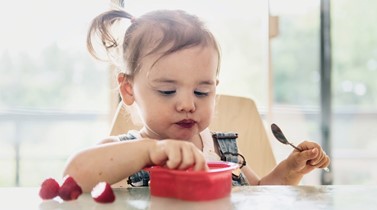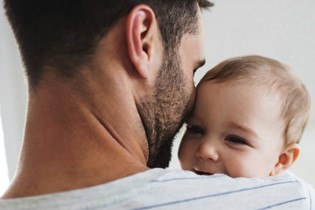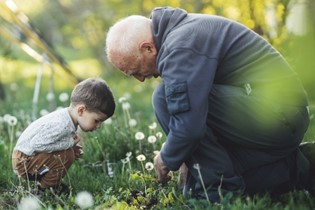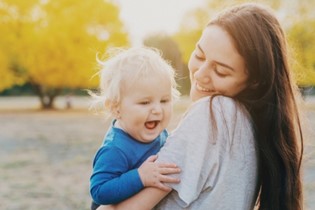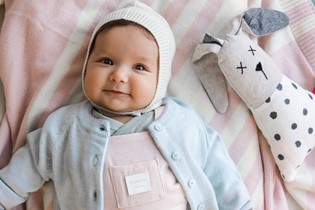Brushing up: what you need to know about looking after baby’s teeth
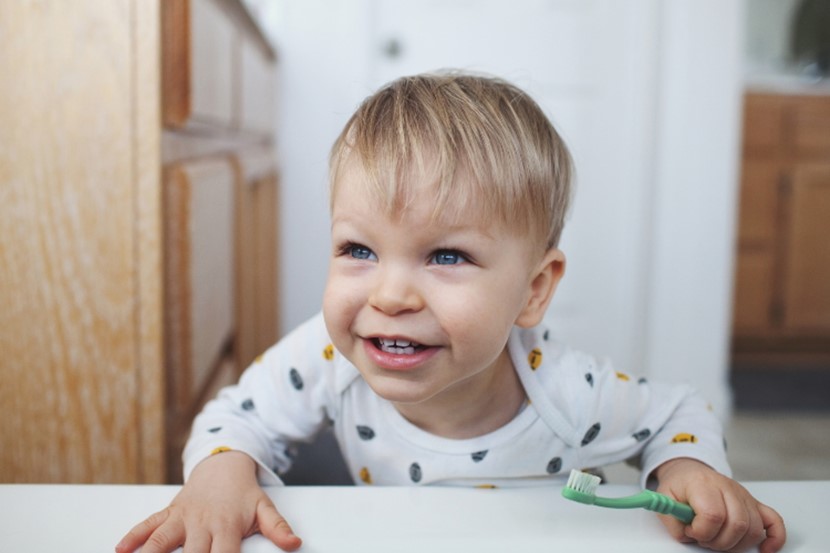
There’s a lot to know about kids’ oral hygiene. From deciduous teeth and eruptions to drifting and demarcations, Dr Mo Al-Dujaili fills in the gaps.
As all parents are aware, babies and young children are dependent on their parents for all of their day-to-day needs. Feeding, changing nappies and keeping them warm are the obvious and most highlighted needs for a little one’s general wellbeing. Meanwhile, tooth care and ongoing dental maintenance are often overlooked during the early years. This is because baby teeth (also known as primary teeth or deciduous teeth) are treated as dispensable teeth, as we all know that there will be a second set of adult teeth replacing them. This, however, is an incorrect assumption as baby teeth have important purposes –physiological and functional. They’re not only important when it comes to biting and chewing in the early years, they also play an important role in the development of your child’s jaw bones and facial muscles, speech, nutrition and aesthetics. Primarily though, they act as placeholders, or maintainers of space, for the adult teeth until those are ready to come through the gums.
The ins and outs of a growing mouth
The first permanent teeth do not appear in the mouth until your child is around six years old. The classic sign for their initial approach is a wiggly baby tooth. Generally, a wiggly baby tooth gets wigglier and wigglier as the adult tooth dissolves the root of the baby tooth. Once the majority of the baby tooth root has been dissolved, it exfoliates or falls out. As we all grow at different rates, the adult teeth erupt into place at slightly different times, providing a range of dates for when these teeth are expected to erupt. Generally, they should follow a common trend. The first to erupt are the lower incisor teeth around the age of five to seven years, followed by the upper incisor teeth. This continues until twenty adult teeth replace all twenty upper and lower baby teeth. In addition, the permanent set of teeth includes the eruption of the six-year-old molars, twelve-year-old molars and wisdom teeth. The last permanent teeth to erupt (excluding the wisdom teeth) come through around the age of 12-13 years. From this you begin to appreciate that some of your child’s baby teeth actually need to last up to 12 years!
What happens if your baby loses a tooth early?
One of the key functions of baby teeth is that they serve as natural space maintainers for the adult permanent teeth, acting as a guide to the new tooth’s eruption. Losing a baby tooth when the adult tooth is more than six months away from eruption causes drifting and space loss as the other baby teeth begin to move. This movement can ultimately result in crowding and, if significant, can cause some teeth to stay buried under the gums due to a lack of space – often referred to as impacted or trapped teeth. This unwanted movement and imminent crowding results in changes to the bite and teeth positions, which can predispose your child to needing complex and costly orthodontic treatment when they’re older.

Something else worth considering is that a child with early loss of teeth may lose chewing efficiency. It can also affect aesthetics, speech, and/or bone and tooth development. Tooth decay can cause your child significant discomfort, causing them to refuse certain foods or limit the food he or she is consuming. From a psychological point of view, a child with pain from extensive decay, who must attend a dental visit, is likely to associate unpleasant feelings with visiting a dentist. This is because more complex procedures, including extractions (if necessary), are often required to address the decay. In some children, the anxiety build-up can be significant enough to cause life-long dread with future dental visits.
To avoid such problems, we must encourage good oral health habits for children. These habits need to be forged early in order to maintain healthy baby and permanent teeth. As such, good oral hygiene practice must be taught and highlighted from a very young age.
Teeth cleaning 101
To maintain the health of your children’s teeth, the following recommendations have been made by numerous regulatory bodies, dental associations and dental specialist organisations including the New Zealand Dental Association. Cleaning your child’s teeth should start as soon as the first tooth erupts into the mouth. This usually occurs around six months of age. As children are all individuals and thus grow differently, be on the lookout for these lower incisor teeth anywhere between five to seven months. When starting out for the first few weeks, be extra careful and gentle when cleaning your child’s teeth. The oral cavity is very sensitive and you want your child to have a comfortable experience. Use a small and very soft children’s toothbrush and massage the teeth and gums using a pea-sized amount of fluoridated children’s toothpaste. Make sure you do this both morning and night to ensure that food does not build up on the teeth causing them to weaken. As your baby grows, make sure to look carefully into the mouth for any markings on the teeth, including any demarcations or white lesions on the teeth close to the gum line as signs of possible early decay. Remember, you are not necessarily looking for black spots!
Tell, show, do
It is important to routinely monitor how your youngsters are brushing. Using a mouthwash made up of a teaspoon of any food dye in half a cup of water can clearly stain areas of plaque that your son or daughter may be missing. Try this at home, and give your kids feedback about their tooth brushing and the areas they are missing or not covering well with their toothbrush. The aim should be to teach your child so that they may learn and master brushing their own teeth. Using the ‘tell, show, do’ technique has been recommended and shown to work exceptionally well – tell them how to do it and explain the process of getting the teeth polished and cleaned. Show them how to brush the teeth, and finally, let them do it all by themselves.
When snacks attack
Maintenance of teeth does not just involve brushing them. In fact, it starts with the food that your little one is introduced to. Make sure to choose healthy foods that are low in sugar and acids, as foods that are sugary, sticky and high in carbohydrates are damaging to the teeth. Soft drinks are best completely avoided, especially in the early years, while fruit juices should be very limited – water is the best drink to give.
These important day-to-day habits, along with regular check- ups with a dental professional, will maintain your child’s teeth and will ensure that their dental health remains in optimal shape.
|
Dr Mo Al-Dujaili is a qualified Specialist Orthodontist who practises at Shakespeare Orthodontics in Auckland. See more about Mo at www.shakespeareortho.co.nz. |

AS FEATURED IN ISSUE 42 OF OHbaby! MAGAZINE. CHECK OUT OTHER ARTICLES IN THIS ISSUE BELOW






